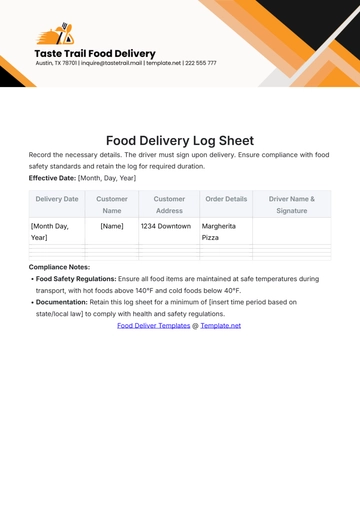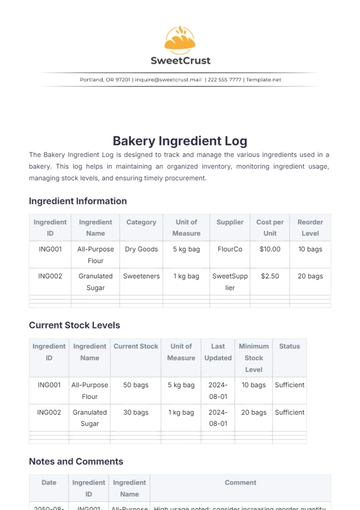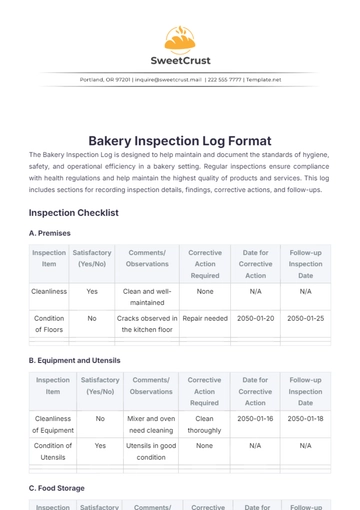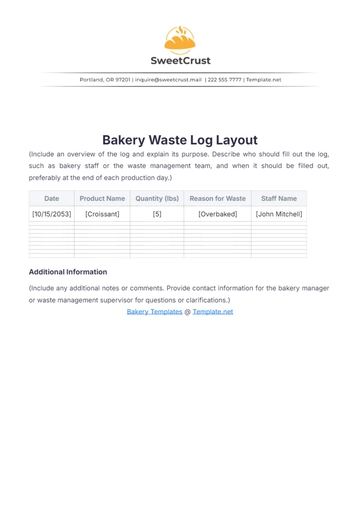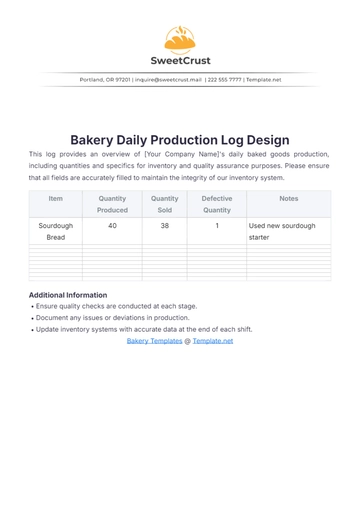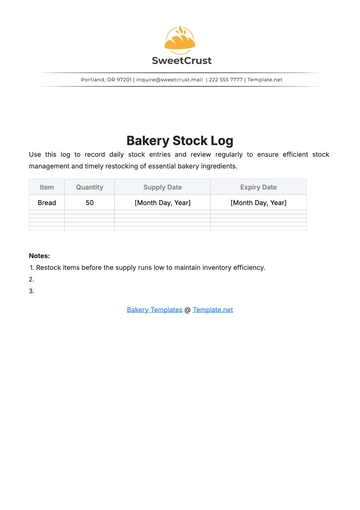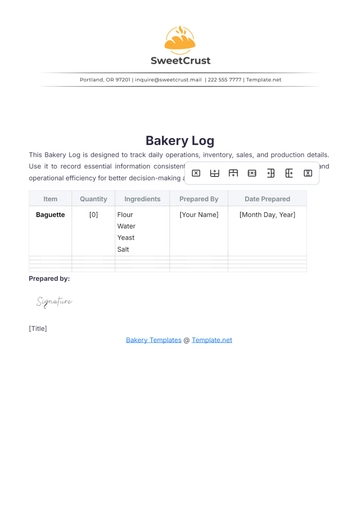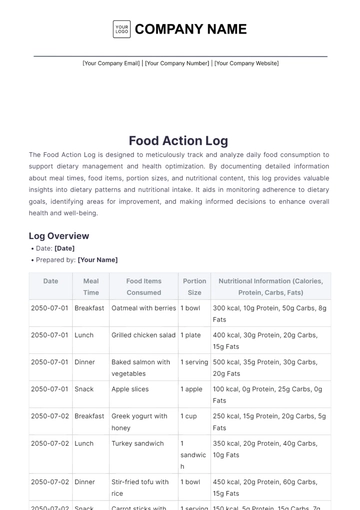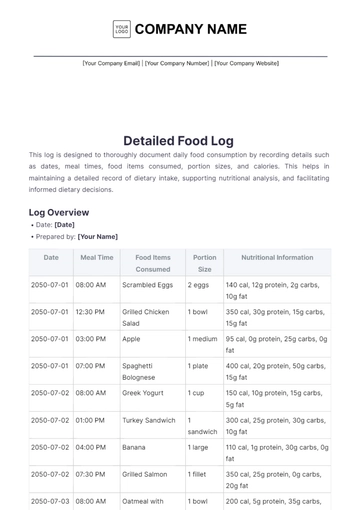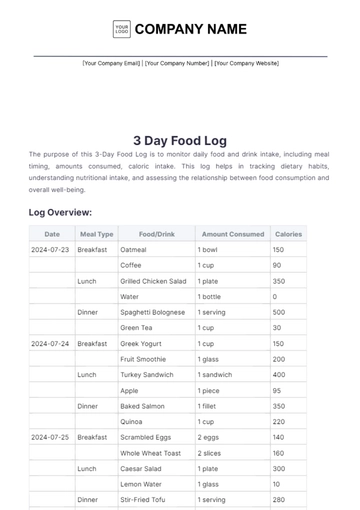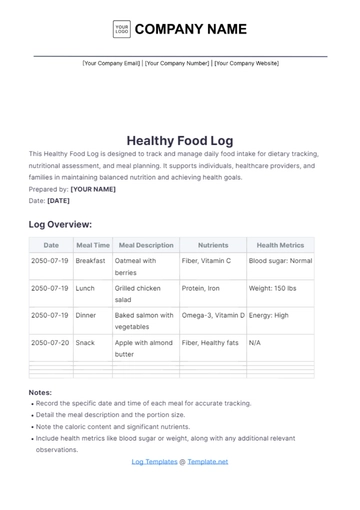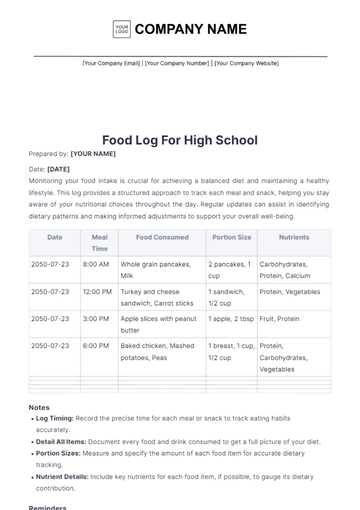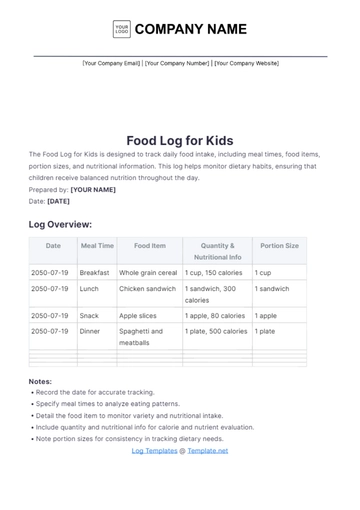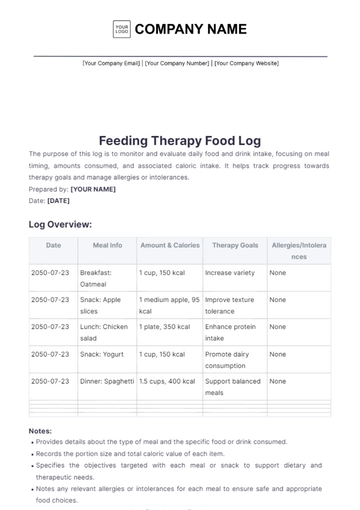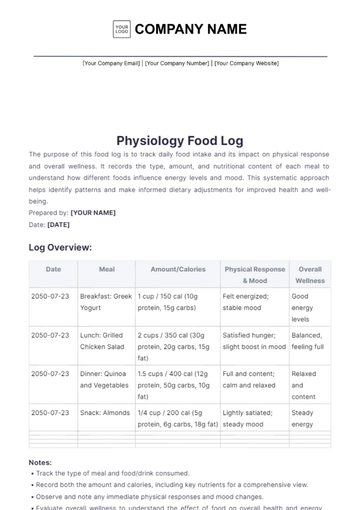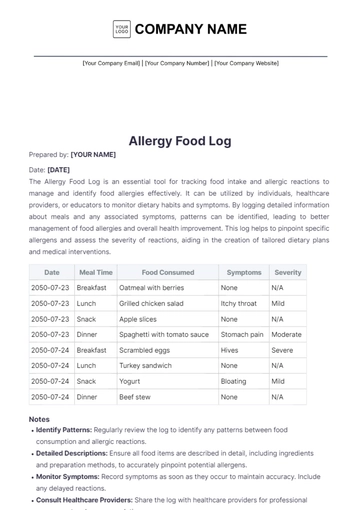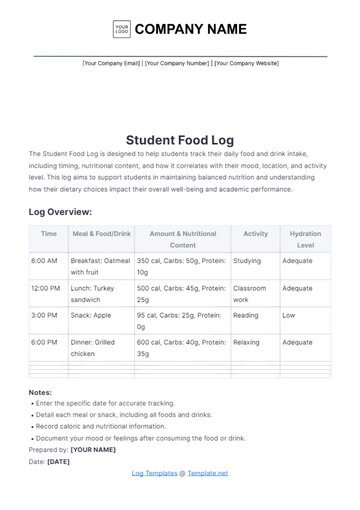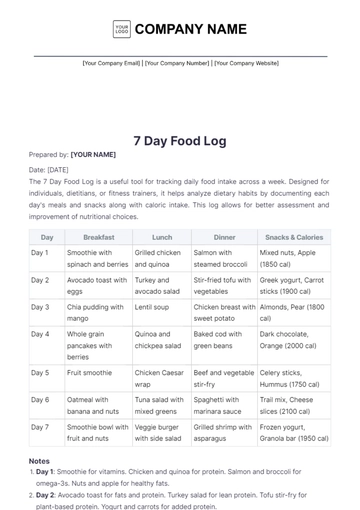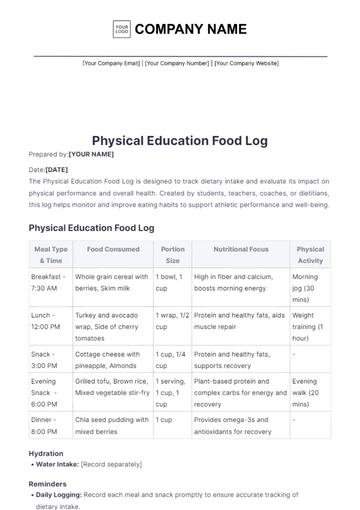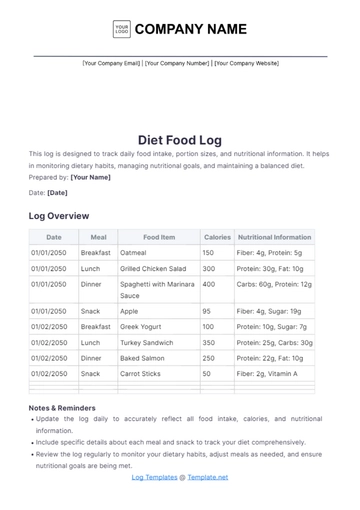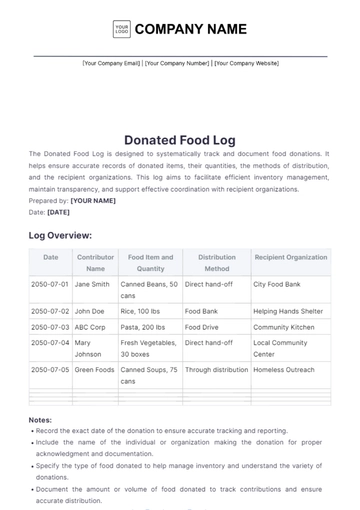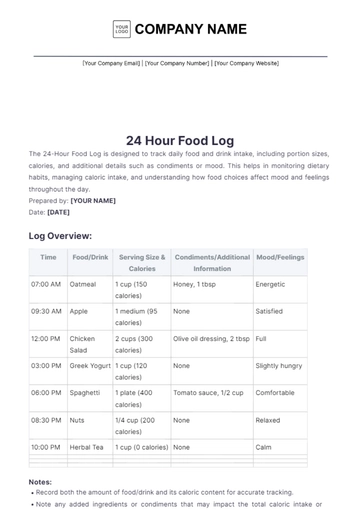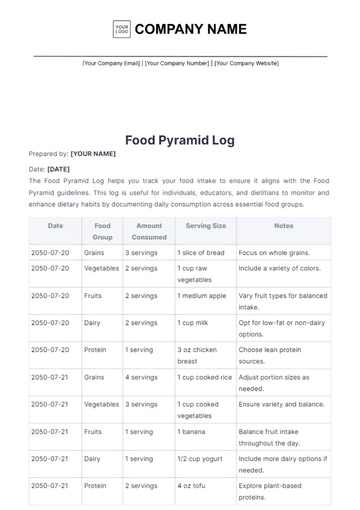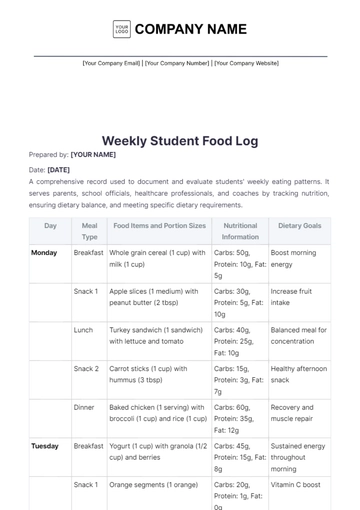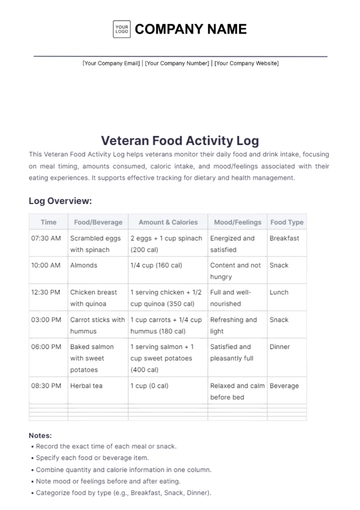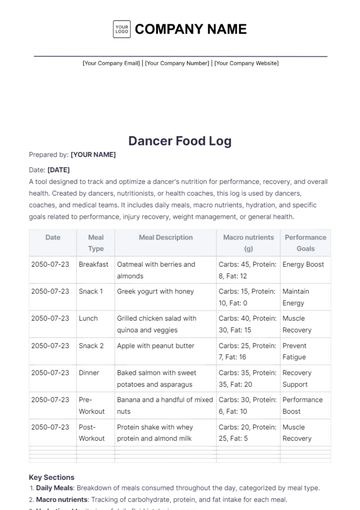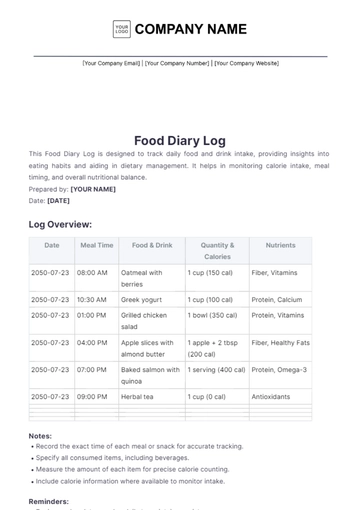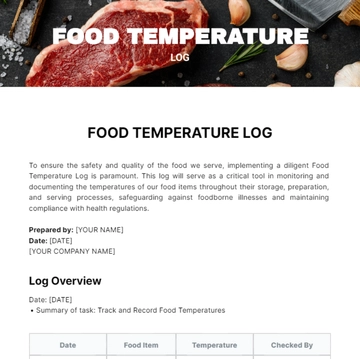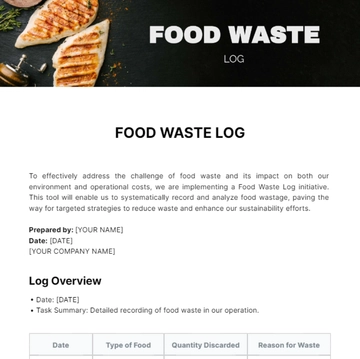Free Allergy Food Log
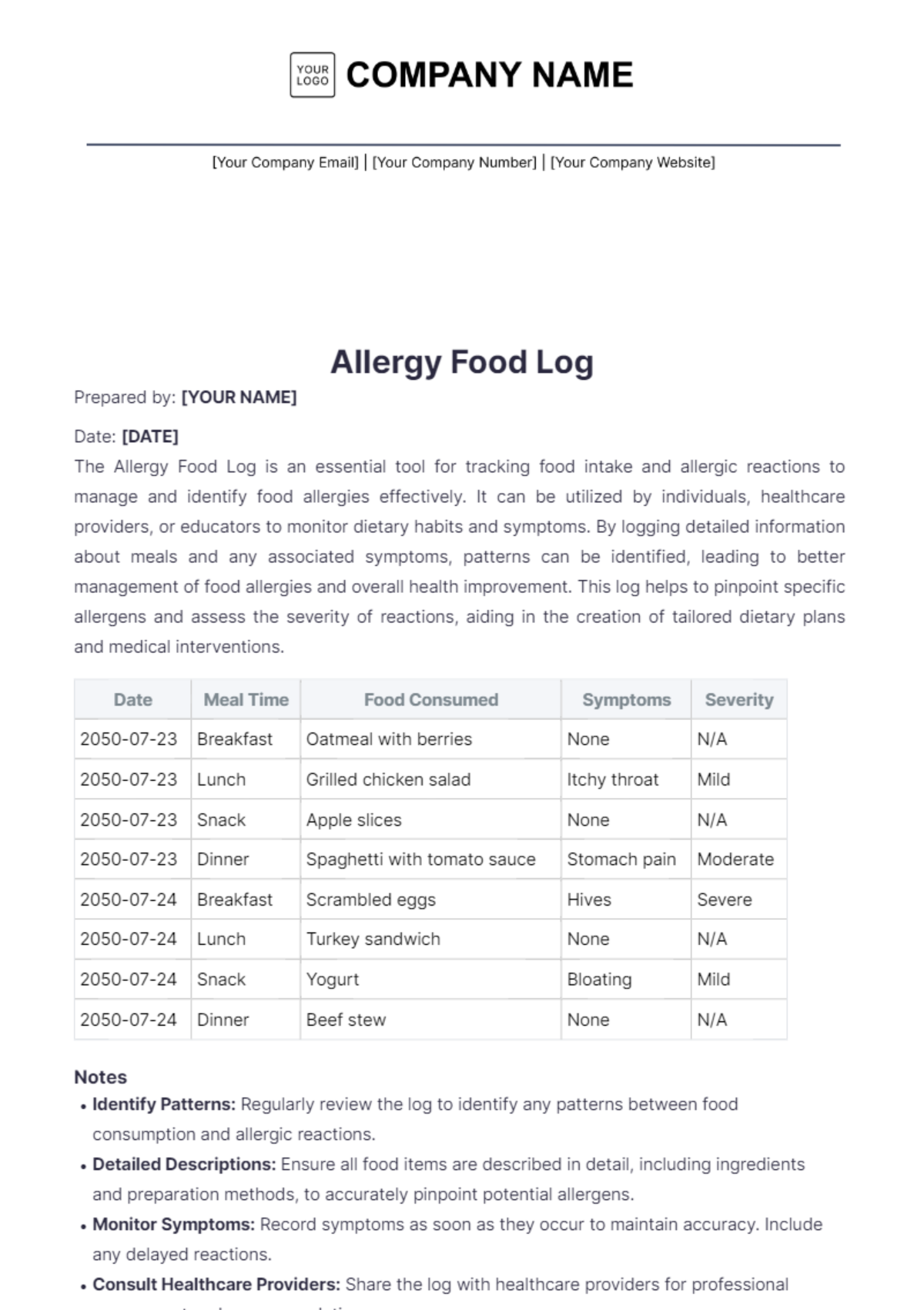
Prepared by: [YOUR NAME]
Date: [DATE]
The Allergy Food Log is an essential tool for tracking food intake and allergic reactions to manage and identify food allergies effectively. It can be utilized by individuals, healthcare providers, or educators to monitor dietary habits and symptoms. By logging detailed information about meals and any associated symptoms, patterns can be identified, leading to better management of food allergies and overall health improvement. This log helps to pinpoint specific allergens and assess the severity of reactions, aiding in the creation of tailored dietary plans and medical interventions.
Date | Meal Time | Food Consumed | Symptoms | Severity |
|---|---|---|---|---|
2050-07-23 | Breakfast | Oatmeal with berries | None | N/A |
2050-07-23 | Lunch | Grilled chicken salad | Itchy throat | Mild |
2050-07-23 | Snack | Apple slices | None | N/A |
2050-07-23 | Dinner | Spaghetti with tomato sauce | Stomach pain | Moderate |
2050-07-24 | Breakfast | Scrambled eggs | Hives | Severe |
2050-07-24 | Lunch | Turkey sandwich | None | N/A |
2050-07-24 | Snack | Yogurt | Bloating | Mild |
2050-07-24 | Dinner | Beef stew | None | N/A |
Notes
Identify Patterns: Regularly review the log to identify any patterns between food consumption and allergic reactions.
Detailed Descriptions: Ensure all food items are described in detail, including ingredients and preparation methods, to accurately pinpoint potential allergens.
Monitor Symptoms: Record symptoms as soon as they occur to maintain accuracy. Include any delayed reactions.
Consult Healthcare Providers: Share the log with healthcare providers for professional assessment and recommendations.
Update Regularly: Keep the log updated daily to ensure comprehensive tracking and effective allergy management.
- 100% Customizable, free editor
- Access 1 Million+ Templates, photo’s & graphics
- Download or share as a template
- Click and replace photos, graphics, text, backgrounds
- Resize, crop, AI write & more
- Access advanced editor
Track and manage dietary restrictions effortlessly with our Allergy Food Log Template from Template.net. This customizable and editable template is designed for ease of use, allowing you to tailor entries to your needs. Edit effortlessly in our Ai Editor Tool to ensure accurate and efficient allergy tracking.
